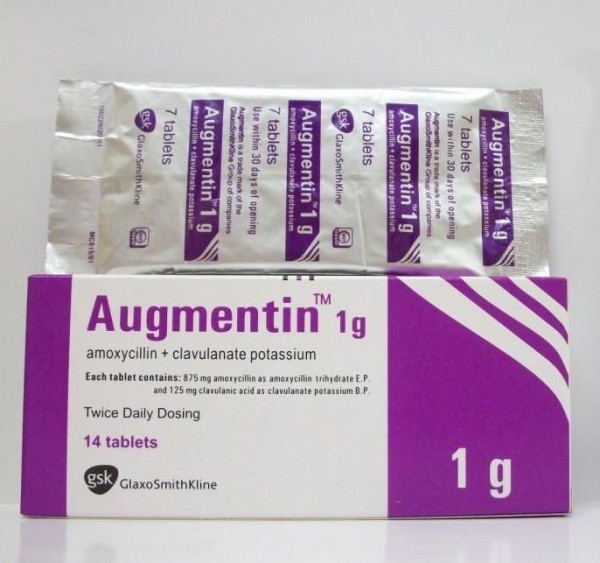
If you have ever had an infection, chances are high the doctor will prescribe an antibiotic. That antibiotic could be Augmentin.
Here is the scary part, the World Health Organisation (WHO) has just issued an alert that there are fake Augmentin drugs on sale in Kenya and Uganda.
Sadly, this is not the first alert about Augmentin fakes being sold in Africa. In March 2018, WHO issued a similar alert.
Common prescription for bacterial infections
Augmentin, a combination of amoxicillin and clavulanic acid, is a common antibiotic used in the management of bacterial infections, including lower and upper respiratory infections and urinary tract infections, among others.
WHO cautioned patients against using Augmentin (Amoxicillin trihydrate — Potassium clavulanate), batch number 786627 manufactured by SmithKline Beecham Limited.
“The packaging of the falsified product appears to be a close imitation of the genuine product manufactured by GSK (GlaxoSmithKline),” WHO said in a statement.
WHO says it has informed the Kenya Pharmacy and Poisons Board (PPB) about its findings.
The board, in a statement, asked the public to remain vigilant and report to the board in case they come across any counterfeit Augmentin tablets.
“The board wishes to reassure the public of its commitment to safeguard the health of the public by ensuring only safe, quality and efficacious medical products and health technologies are available in the market,” Dr F M Siyoi, the board’s chief executive officer said.
Deadly effects of fake drugs
Fakes are a major public health concern around the world.
According to Dr Ken Muchangi of Ivory Health Solutions, patients who use counterfeit drugs, are largely unaware of the dangers of purchasing them. He says patients also lack the knowledge of differentiating between fake and authentic drugs, “and this is a major public health issue, counterfeit drugs are neither safe nor effective.”
“The fake drugs tend not meet the standards and will not do what the original drugs are supposed to do. The medicines generally are of poor quality and this will compromise the treatment of the various diseases, causing disease progression, organ failure and may eventually lead to death,” he adds.
Dr Muchani stresses that fake or falsified drugs may contain toxic components of dangerous ingredients and this will cause side effects to the patients.
“These substandard and falsified medicines encourage drug resistance, threatening the health of a patient,” he says.
How to differentiate fake and genuine medicine
There has been a prevalence for fake drugs in the Kenyan market. The Food and Drug Administration (FDA) says popular drugs are top targets of counterfeiters because they are the biggest sellers.
FDA further warns the consumers to be keen on the prices saying that if appears the price of a drug is too low; it should trigger suspicion.
“Consumers should check labels and packaging. Most counterfeit drugs have labels that are poor replicas of the original. The pills themselves could be irregularly coloured or they crumble easily,” FDA stated.
Dr Muchangi advices Kenyans to “buy medicines from drugstores that are licensed and not just anywhere and at the places of their convenience.”
The Kenya Pharmacy and Poisons Board also recalls drugs because of their side effects and failure to meet the quality standards.
In July last year, the board recalled batches of a pneumonia drug. The board said the drug, Gentamicin, administered through an injection, causes severe headache. The drug is always given in combination with others to treat bacterial infections.
Generic drugs
What is the difference between fakes and generics?
Well, according to medicinenet.com, generic drugs are copies of brand-name drugs that have exactly the same dosage, intended use, effects, side effects, route of administration, risks, safety, and strength as the original drug.
In other words, their pharmacological effects are exactly the same as those of their brand-name counterparts.
“An example of a generic drug, one used for diabetes, is metformin. A brand name for metformin is Glucophage. Brand names are usually capitalized while generic names are not. A generic drug, one used for hypertension, is metoprolol, whereas a brand name for the same drug is Lopressor.”
The generic drugs tend to be affordable leading their wide range of use.
 The Standard Group Plc is a multi-media organization with investments in media
platforms spanning newspaper print
operations, television, radio broadcasting, digital and online services. The
Standard Group is recognized as a
leading multi-media house in Kenya with a key influence in matters of national
and international interest.
The Standard Group Plc is a multi-media organization with investments in media
platforms spanning newspaper print
operations, television, radio broadcasting, digital and online services. The
Standard Group is recognized as a
leading multi-media house in Kenya with a key influence in matters of national
and international interest.











